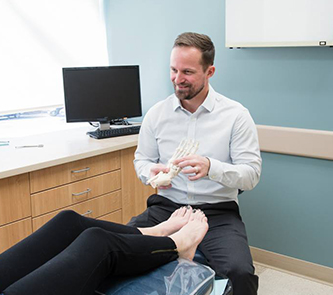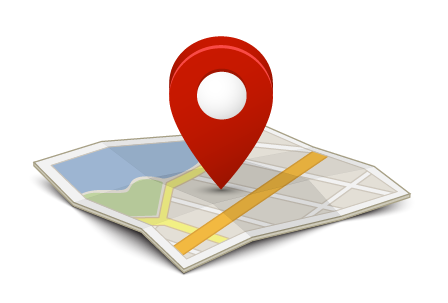Flat Feet Treatment
Just as with any other structure, the shape of your feet can have a big impact on how sound and comfortably you stand.
The arch of the foot provides a great deal of support, but some people do not have as highly developed an arch as others. This is often referred to as “flat feet” or “flatfoot.”
What Causes Flat Feet?

Many times, flat feet just run in the family. If you have underdeveloped arches, odds are more likely that your child will, too.
Arches can also weaken via other factors. A foot injury or arthritis may contribute to flat feet. So may an injury or a dysfunction of the posterior tibial tendon (this is sometimes referred to as “tibialis posterior tendinitis” or “adult-acquired flatfoot”). A nerve condition or disease might also play a factor in rare cases.
Additional risk factors include the extra weight of obesity and pregnancy (especially in the latter, when hormonal changes cause joints to loosen).
One important thing to note, however, is that you will very frequently see flat feet in younger children. It often looks like a disappearing act, as the arch vanishes when they stand, but reappears when they sit or rise up onto their toes.
The above condition is known as “flexible flatfoot” and is very often not a reason to be concerned. Most of us are not born with fully developed arches, and it may take several years before they arrive.
That said, it is still important to periodically monitor a child’s flexible flatfoot over time in case it starts showing signs of not going away or symptoms of a treatable problem. Don’t hesitate to reach out to the flatfoot experts at our Portsmouth or Nashua locations if you have questions about your child’s flatfoot.
When Do Flat Feet Become a Problem?

Flat feet may cause an imbalance in how the body supports its weight. This, in turn, can cause the foot to roll more than typical when walking, or “overpronate.”
You might notice that the tread on the heels or sides of your shoes may wear out faster than the rest of them. This is a good sign that your body weight may be getting unevenly distributed over your feet and lower limbs, and this may result in pain as the connecting muscles, ligaments, and tendons experience excess strain.
Pain from flat feet doesn’t necessarily have to be limited to the foot. Due to the connectivity of our body structures, the strain from imbalance can be felt in the inner ankle, calf, knee, hip, and even back.
How Do You Treat Flat Feet?
If flat feet are causing pain or discomfort, these issues can often be addressed via conservative treatments.
The specific forms of treatment recommended will largely depend on the causes and severity of the condition. Custom-made orthotic devices worn in the shoes, can help support arches and prevent overpronation, often helping to relieve pain.
If the problem stems from the posterior tibial tendon, orthotics may help this condition by taking extra pressure off it. An ankle brace may also be effective in this case.
Icing, supportive taping, and nonsteroidal anti-inflammatory medications (NSAIDs) are general conservative treatments recommended for pain and swelling. Physical therapy can also be recommended to help stretch and strengthen the soft tissues that are at higher risk of strain.
In some cases, surgery may be necessary to provide relief when conservative methods fail to do so. If surgery is a consideration, we will be sure to discuss all of the potential options with you.
In the case of flexible flatfoot in young children there may not be a need for treatment if there is no pain or discomfort, but we still recommend a periodic examination of your child’s feet, so we can monitor their growth and development, though.
Don’t let complications from flat feet keep you from the ups and downs of life. It doesn’t matter if you are located in Exeter, Hampton or Durham, we are the most trusted foot care specialists in the area. If you have questions about flatfoot or need to schedule an appointment with one of our expert podiatrists regarding pain or discomfort, contact our Nashua or Portsmouth offices by calling (603) 431-6070.
Pay Your Bill
Make a payment online through our payment portal or Care Credit!
Portsmouth Office
14 Manchester Square, Suite 250
Portsmouth, NH 03801
Nashua Office
17 Riverside Street, Suite 205
Nashua, NH 03062
Website Hosted by SC Digital



